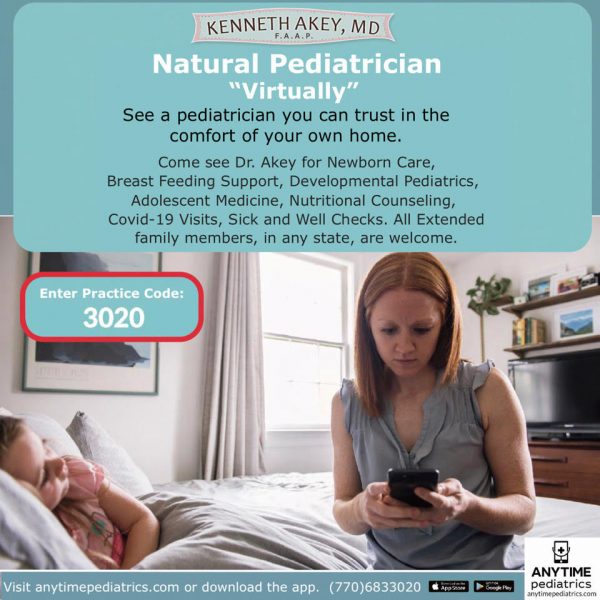Developmental Pediatrics
Ensuring Proper Development

Developmental pediatrics tracks the normal development of children so abnormalities can be detected. These abnormalities are usually indicators of mental or physical conditions.
Dr. Akey has a passion for developmental pediatrics. As a telemedicine doctor, he deals with concerned parents all the time. Our knowledge and experience can help determine whether your child is developing normally or if they may have a developmental disorder.
With every visit, we can give your child a developmental evaluation. This simple exam can help discover warning signs for developmental delays, when a child misses milestones for performing certain tasks (speaking, walking, etc.), or developmental disorders.
The exam can detect some of the following disorders:
- ADHD/ADD
- Disruptive behavior
- Lack of discipline and/ or respect
- Spectrum Behaviors (Autism)
If necessary, Dr. Akey can perform a detailed evaluation and refer you to a specialist if he suspects a more serious complication.
*Please note that Dr. Akey does not prescribe controlled substance medications for ADD/ADHD or other developmental disorders, he will only recommend a “natural” approach or non-stimulant medication if needed.*
Could my toddler have a development problem?
As you watch your toddler grow and anticipate his milestones, it’s natural to wonder (and even worry) about whether his development is on track. (“Shouldn’t he be waving by now?” or ” His sister was using a spoon by this age — why isn’t he?”) But chances are that he’ll develop just fine, on his own timeline.
In most instances, children reach each developmental milestone (like toilet training, climbing, and talking) right around the expected time, and if they don’t they catch up soon. On the other hand, spotting potential problems sooner rather than later is important if your toddler does have a genuine developmental delay.
What does “developmental delay” mean?
Doctors use this term when a child doesn’t reach developmental milestones within the broad range of what’s considered normal. The delay might be in one or more areas: gross and fine motor skills (such as walking and scribbling with a crayon); communication and language skills (both “receptive,” which relates to understanding, as well as “expressive,” which relates to speaking); self-help skills (like toilet training and dressing); and social skills (such as making eye contact and playing with others).
“It’s important to remember that while development tends to unfold in a typical progression — most babies crawl before they walk, make sounds before they say their first word — children develop at different rates and in different ways,” says Claire Lerner, child development specialist at Zero to Three, a national nonprofit promoting the healthy development of children.
So, for example, one 18-month-old may have very advanced motor skills because he loves to explore and interact through movement, but he may not have many words under his belt, while another toddler the same age may be stringing two words together but be less adept at motor skills. “What’s most important to track is that the child is making forward progress in all domains,” explains Lerner.
Kenneth Akey M.D., F.A.A.P.
Call our pediatrics office at 770-683-3020 for more information about developmental pediatrics.



